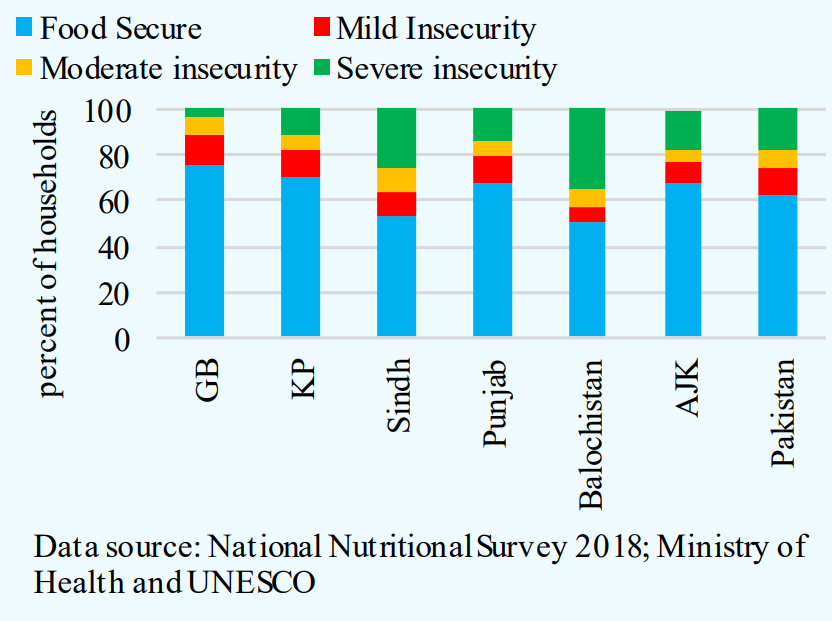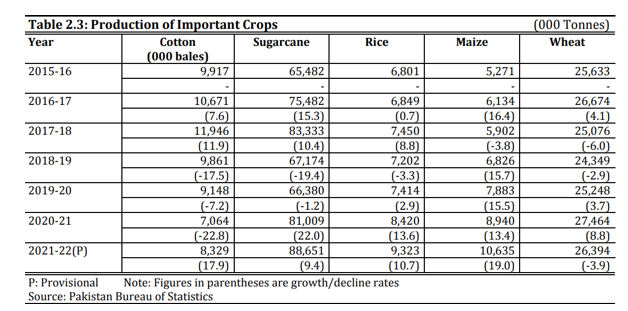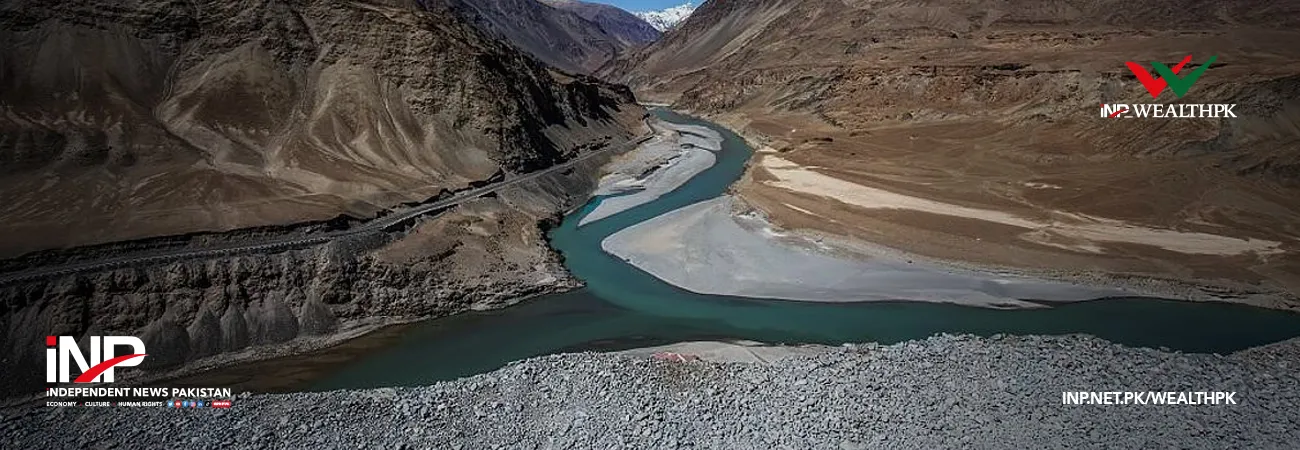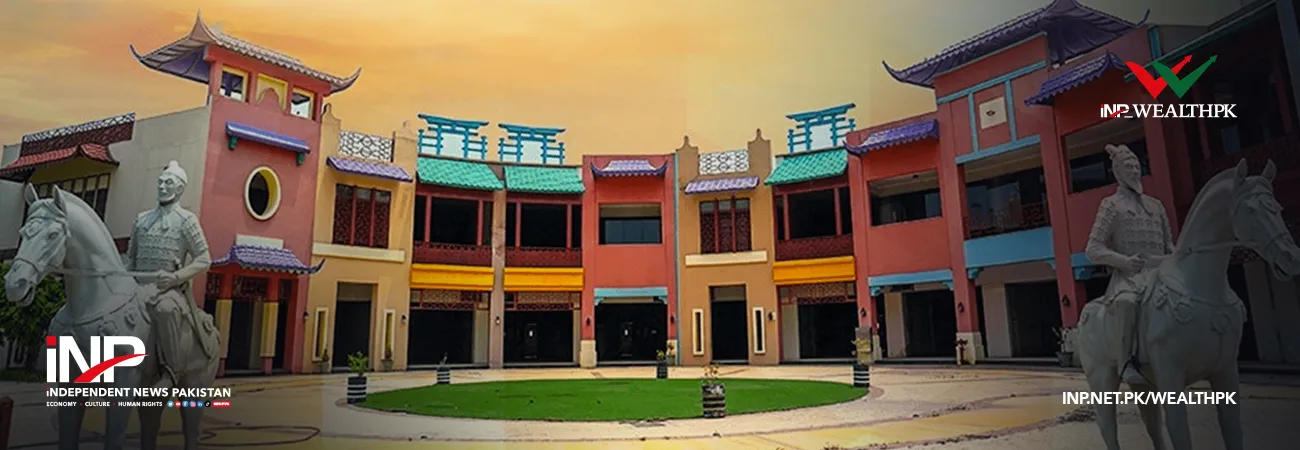INP-WealthPk
Arooj Zulfiqar
The current state of food chain in Pakistan is a cause for concern requiring urgent attention. Structural transformation is needed to promote diversity, decentralization, and fair-trade practices. This will not only improve food security and nutrition but also help build a more resilient and sustainable food system that benefits all the stakeholders, says WealthPK.
“Despite being an agricultural country, Pakistan faces various challenges when it comes to food security and nutrition. The country is home to around 220 million people, yet around 40% of the population is food insecure. This situation is exacerbated by the Covid-19 pandemic and the economic crisis it has triggered,” said Muhammad Alamgir Chaudhry, Chief Executive Officer, National Productivity Organization.
Household food insecurity in Pakistan by Province/Region

He said, “One of the main issues is the lack of diversity in the food system. Pakistan’s food chains heavily rely on a few major crops, such as wheat, rice, and sugarcane, which dominate the agricultural landscape. This narrow focus not only limits the variety of food available to consumers but also exposes the country to significant risks, such as crop failures and price fluctuations.”

“Moreover, the current food system in Pakistan is highly centralized, with a few large-scale producers dominating the market. This concentration of power often leads to unfair trade practices, with smaller farmers and producers struggling to access markets and secure a fair price for their products.”
“To address these challenges, Pakistan needs to undergo a structural transformation of its food chains. This transformation should aim to increase diversity in the food system, promote decentralized production and distribution, and ensure fair and equitable trade practices,” he continued.
“Promoting crop diversity should be the top priority. The government should incentivize the production of a wide range of crops, including fruits and vegetables, pulses, and oilseeds. This can be achieved through policies that provide financial support and technical assistance to the farmers who switch to more diverse crops. Furthermore, the government should invest in research and development to identify and promote crops that are well-suited to Pakistan’s diverse agro-climatic conditions,” he said.
“Additionally, decentralization of production and distribution is key to promoting a more resilient and equitable food system. Small-scale farmers and producers should be supported through policies that provide access to credit, technology, and marketing support. This will help them produce and sell their products more effectively, and reduce their reliance on large-scale intermediaries.”
“Fair and equitable trade practices should be prioritized. This can be achieved through policies that promote transparency in pricing, and by enforcing regulations to prevent monopolistic practices. Furthermore, the government should support the development of local food systems, such as the farmers’ markets and community-supported agriculture, which provide a direct link between consumers and producers, and promote fair prices for farmers.”
Credit: Independent News Pakistan-WealthPk













